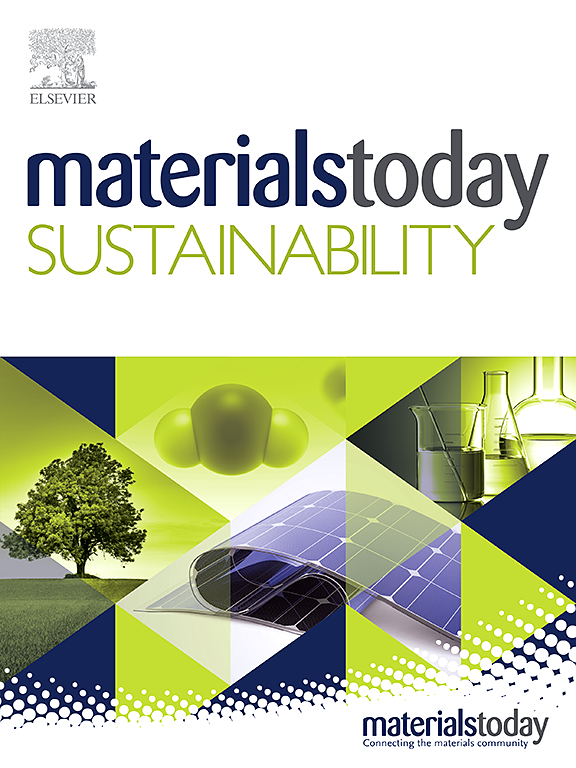环保岩石压裂:用硫酸钙增强SREMA,实现矿物的可持续回收
IF 7.9
3区 材料科学
Q1 GREEN & SUSTAINABLE SCIENCE & TECHNOLOGY
引用次数: 0
摘要
研究了硫酸钙(CaSO4)对原位矿物回收(IMR)缓释能量材料剂(SREMAs)性能的影响。进行了膨胀压力测量、等温量热、x射线衍射(XRD)、扫描电镜(SEM)等综合实验分析。结果表明,在SREMA配方中加入1%的CaSO4,可以最佳地促进波特兰岩和钙矾石的形成,与对照混合物相比,膨胀压力提高了15.3% (28.67 MPa)。流变试验表明,在该浓度下可改善和易性和粘结性,平衡了水饱和条件下的流动性和抗冲蚀性。过量的CaSO4 (> 1%)通过破坏水合动力学和形成次级相降低了性能。这些发现强调了CaSO4在促进水化效率和体积膨胀方面的协同作用,这可能对改善srema在IMR应用中的性能具有重要意义。未来的研究建议进一步优化该系统,通过添加剂增强和纳米颗粒集成来提高SREMA的膨胀压力产生潜力,用于深部地下应用。本文章由计算机程序翻译,如有差异,请以英文原文为准。
Eco-friendly rock fracturing: Enhancing SREMA with calcium sulfate for sustainable mineral recovery
The study investigates the impact of calcium sulfate (CaSO4) on the performance of Slow-Releasing Energy Material Agents (SREMAs) for in-situ mineral recovery (IMR). Comprehensive experimental analyses were conducted, including expansive pressure measurement, isothermal calorimetry, X-ray diffraction (XRD), and scanning electron microscopy (SEM). Results revealed that incorporating 1 % CaSO4 into SREMA formulations optimally enhances portlandite and ettringite formation, achieving a 15.3 % increase in expansive pressure (28.67 MPa) compared to the control mix. Rheological tests indicated improved workability and cohesiveness at this concentration, balancing flowability and washout resistance in water-saturated conditions. Excessive CaSO4 (>1 %) reduced performance by disrupting hydration dynamics and forming secondary phases. The findings underscore the synergistic role of CaSO4 in promoting hydration efficiency and volumetric expansion, which could have implications for improving the performance of SREMAs in IMR applications. Future research is recommended to further optimize the system to increase the expansive pressure generation potential in SREMA through additive enhancements and nanoparticle integration for deep subterranean applications.
求助全文
通过发布文献求助,成功后即可免费获取论文全文。
去求助
来源期刊

Materials Today Sustainability
Multiple-
CiteScore
5.80
自引率
6.40%
发文量
174
审稿时长
32 days
期刊介绍:
Materials Today Sustainability is a multi-disciplinary journal covering all aspects of sustainability through materials science.
With a rapidly increasing population with growing demands, materials science has emerged as a critical discipline toward protecting of the environment and ensuring the long term survival of future generations.
 求助内容:
求助内容: 应助结果提醒方式:
应助结果提醒方式:


